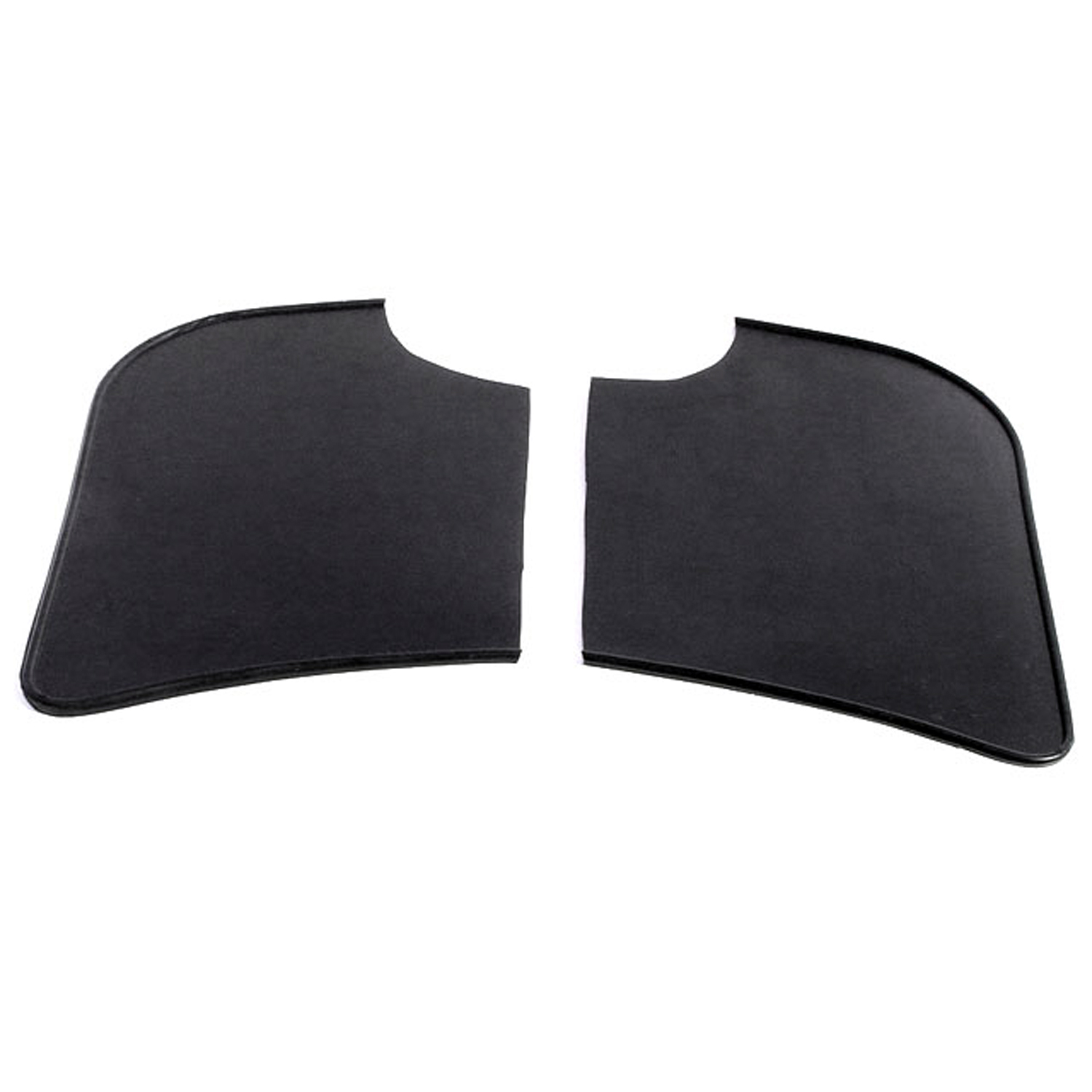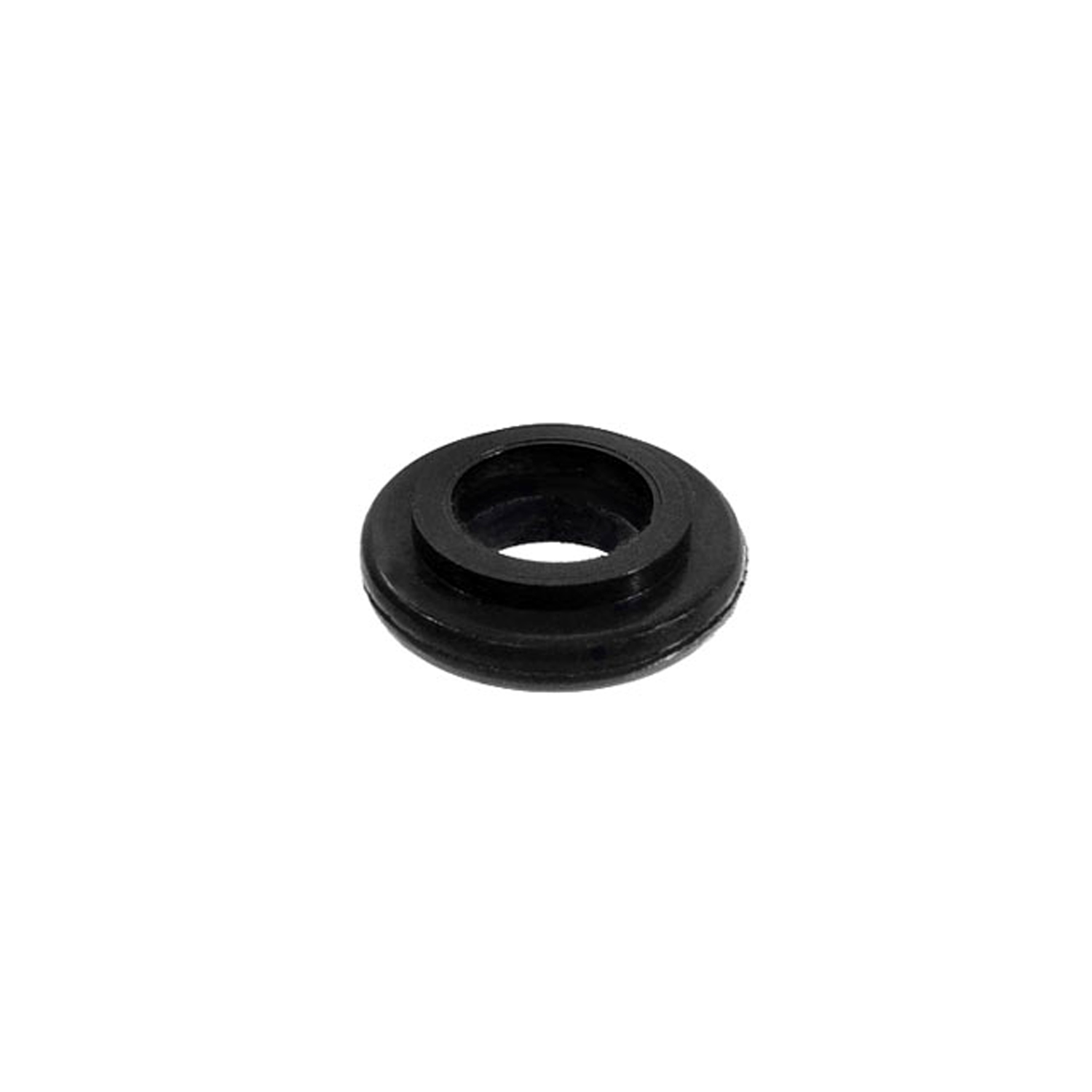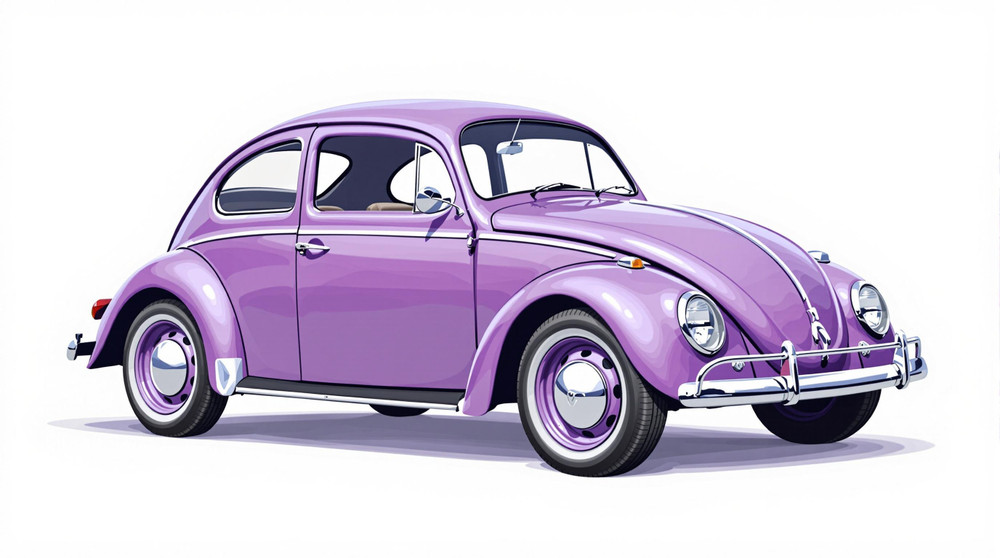Image of 1947 Volkswagen Beetle, Note: These illustrations use artistic license and may differ from actual historical models.
Performance Metrics
Fundamental Metrics
Emotional Appeal
MMP Rating
| Engine Specifications | |
|---|---|
| Engine: | Air-cooled, rear-mounted, flat four |
| Displacement: | 1131cc |
| Horsepower: | 25hp |
| Torque: | 41 lb-ft |
| Compression Ratio: | 5.8:1 |
| Ignition System: | Battery ignition system |
| Cooling System: | Air-cooled |
| Performance Specifications | |
| 0-60 Time: | Estimated over 30 seconds |
| 1/4 Mile Time: | Not available |
| Top Speed: | 62 mph |
| Transmission and Drive | |
| Drive Type: | Rear-wheel drive |
| Transmission Type: | 4-speed manual |
| Fuel and Efficiency | |
| Fuel System Type: | Carburetor |
| MPG: | Estimated 32 mpg |
| Dimensions and Brakes | |
| Brakes: | Drum brakes |
| Wheelbase: | 94.5 inches |
| Weight: | 1,650 lbs |
Note: Specifications for classic cars are given to the best of our ability, considering the limited and variant data available.
Introduction
The year 1947 marked a significant milestone in automotive history with the production of the Volkswagen Beetle, a car that would become an emblem of post-war regeneration and an icon of design simplicity. Born from the ashes of World War II, the Beetle was a product of necessity, engineered by Ferdinand Porsche under the directive of Adolf Hitler to create a "people's car" (Volkswagen in German). Its unique rounded shape, affordability, and practicality won hearts worldwide, making it one of the most recognizable vehicles on the road. A testament to its enduring appeal is the fact that it was one of the first cars to reach a production milestone of 20 million units.
Design and Innovation
The 1947 Volkswagen Beetle's exterior styling was ahead of its time with its distinctive rounded fenders, sloping headlamps, and curvaceous lines that earned it affectionate nicknames like "Bug" or "Käfer" (German for beetle). Inside, the Beetle was unpretentious yet functional, with high-quality materials that belied its economy car status. The dashboard layout was simple and user-friendly, focusing on essential driving needs. Technologically, it featured an air-cooled rear engine and rear-wheel drive—a configuration that was innovative for mass-produced cars at the time. Color options ranged from muted tones to more vibrant hues, with colors like Horizon Blue and Black being popular choices. The most iconic body style was the two-door sedan, which became synonymous with the Beetle's image.
Historical Significance
The Volkswagen Beetle's impact on automotive design cannot be overstated. It challenged conventional American designs with its small size and fuel efficiency at a time when large and powerful cars dominated. The Beetle's success paved the way for other compact cars and signaled a shift in consumer preferences towards economy and functionality. Its influence is evident in numerous subsequent vehicle designs across various manufacturers.
Performance and Handling
While not designed as a performance vehicle, the 1947 Beetle's rear-mounted engine provided a respectable top speed for its era and adequate acceleration from 0-60 mph in about 27 seconds. Handling was nimble due to its lightweight construction and balanced weight distribution. Drivers often praised the Beetle for its ability to absorb road imperfections gracefully while maintaining stability in windy conditions. The driving experience was characterized by the distinctive hum of its air-cooled engine—a sound that became synonymous with the Beetle.
Ownership Experience
The Beetle served many roles—from an economical daily driver to a platform for customization in show car circuits or even racing adaptations like Baja Bugs. Its simplicity meant that maintenance could often be performed by owners themselves, contributing to its reputation for reliability. However, as with any vintage car, contemporary owners should be prepared for the nuances of maintaining a classic vehicle.
Fun Facts
The 1947 Volkswagen Beetle has been part of numerous cultural moments and owned by celebrities throughout history. One intriguing fact is that Beetles were occasionally delivered in unique ways; for instance, some were shipped overseas with their fenders disassembled to save space and reattached upon arrival. Despite criticisms over time regarding performance limitations or safety features compared to modern standards, the Beetle remains beloved by many.
Collector's Information
The collector value of a 1947 Volkswagen Beetle can vary widely depending on condition, originality, and historical significance. While exact production numbers for that year are challenging to pinpoint due to post-war record inconsistencies, it is estimated that tens of thousands were produced. Today's market sees well-maintained examples fetching anywhere from $15,000 to $30,000 or more depending on provenance and rarity.
Conclusion
In summing up the legacy of the 1947 Volkswagen Beetle, we celebrate not just a vehicle but a cultural phenomenon. Its design ingenuity, historical significance, and endearing character have cemented its place in automotive lore. For enthusiasts and collectors alike, owning a '47 Beetle is not just about possessing a piece of history—it's about embracing an ethos of simplicity and joy on four wheels.
1947 Volkswagen Beetle Catalog of Parts
 1947 Volkswagen Beetle Gravel Shields. Molded flat without metal backing plates-FS 40Gravel Shields. Molded flat without metal backing plates. Apply with contact cement. 7-5/8" long X 5-5/8" wide at top. Pair
1947 Volkswagen Beetle Gravel Shields. Molded flat without metal backing plates-FS 40Gravel Shields. Molded flat without metal backing plates. Apply with contact cement. 7-5/8" long X 5-5/8" wide at top. Pair 1947 Volkswagen Beetle Oil Cooler Seal. 7/16" I.D., 7/8" O.D. Each-RP 8-BOil Cooler Seal. 7/16" I.D., 7/8" O.D. Each
1947 Volkswagen Beetle Oil Cooler Seal. 7/16" I.D., 7/8" O.D. Each-RP 8-BOil Cooler Seal. 7/16" I.D., 7/8" O.D. EachWhy Choose Metro?
For over 100 years, Metro Moulded Parts has been the pinnacle of quality in classic car restoration parts. Our commitment to precision and authenticity in every component ensures a perfect fit and an OEM-level appearance.
- Expert Craftsmanship & Quality: Each part is a testament to our dedication to reliability and perfection, crafted from original designs and thoroughly tested.
- Advanced Technology: We use cutting-edge techniques to create flawless, long-lasting parts that surpass others in performance.
- SuperSoft Sponge – The Ultimate Door Seal: Not only are our door seals 30% softer than competitors', but they're also guaranteed to never leak. They effectively reduce wind and road noise, enhancing your classic car's comfort and driving experience.
- Proudly American: Our parts are a product of American craftsmanship, made in the USA with a spirit of excellence and heritage.
- Unrivaled Warranty: We back our products with a 30-year industry-leading warranty, a testament to our confidence in their quality.
Join us in preserving the legacy of classic cars with parts that are crafted for perfection, not just made.

